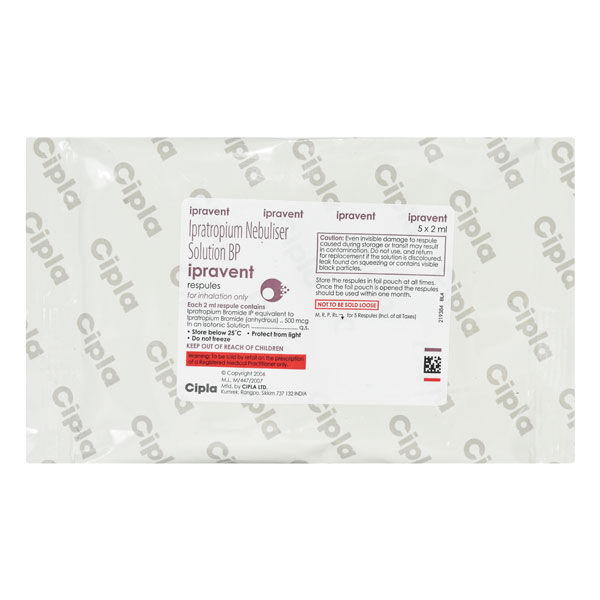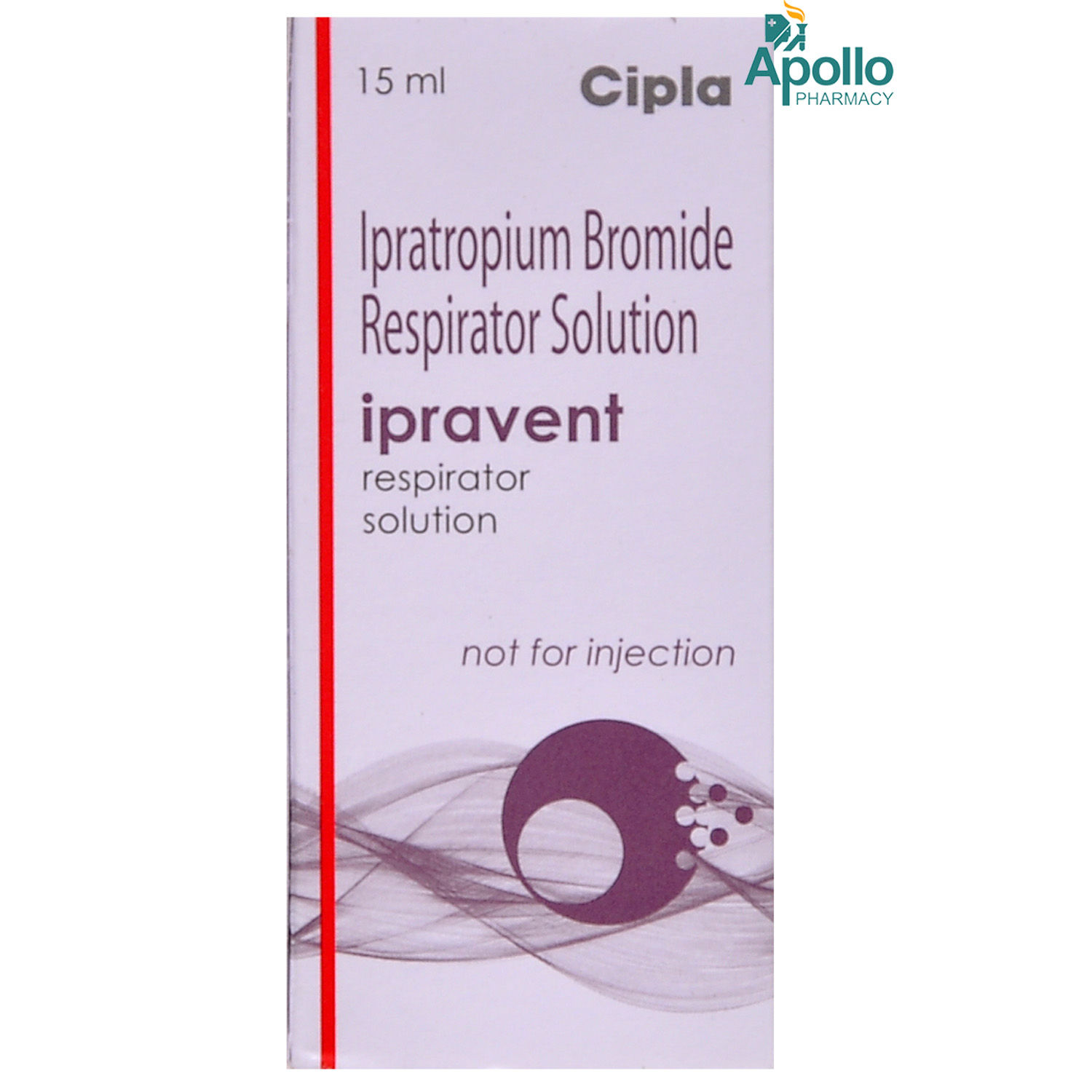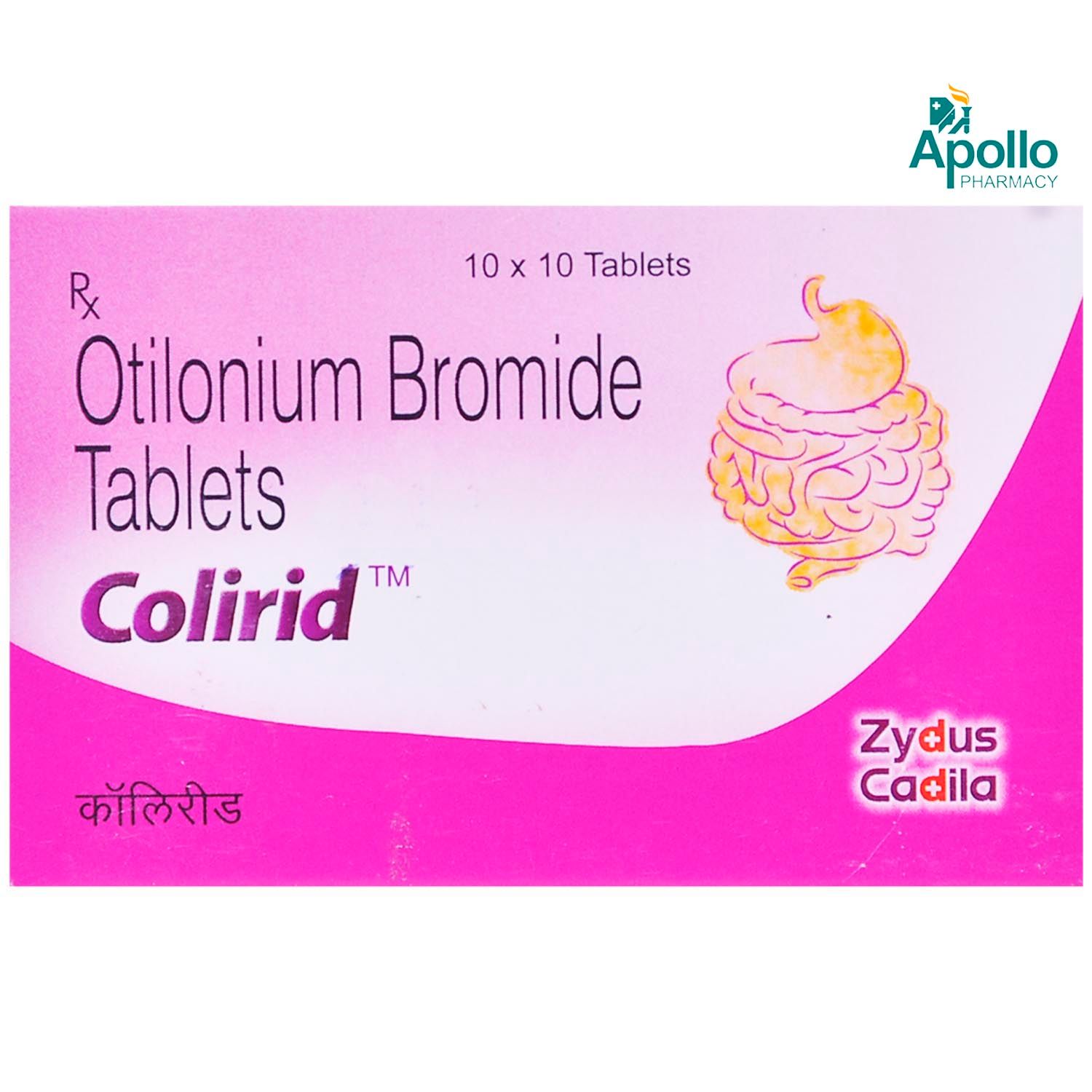Oxyphenonium Bromide
About Oxyphenonium Bromide
Oxyphenonium Bromide belongs to a class of drugs called 'antispasmodics' (spasm and cramps reliever) primarily used to treat and relieve symptoms such as abdominal pain and cramps associated with gastrointestinal (the stomach and intestines) disorders such as ulcers, irritable bowel syndrome, etc. Abdominal spasms or cramps frequently affect your digestive system, producing symptoms such as nausea, indigestion, and abdominal pain, even in cases where the pain originates elsewhere.
Oxyphenonium Bromide contains Oxyphenonium Bromide, an antispasmodic that works by relaxing the muscles in the walls of the intestine. Thus, it provides relief from painful muscle spasms and reduces stomach pain.
Take Oxyphenonium Bromide as prescribed by your doctor. Take Oxyphenonium Bromide for as long as your doctor has prescribed it based on your medical condition. It may cause some side effects like dryness of mouth, difficulty in talking/swallowing, reduced bronchial secretions, blurring of vision, photophobia (fear of light), bradycardia (slow heart rate), tachycardia (fast heart rate), arrhythmias, urinary retention, constipation, vomiting, nausea, confusion and giddiness. Most of these side effects of Oxyphenonium Bromide do not require medical attention and gradually resolve over time. However, if the side effects persist or worsen, please consult your doctor.
Before taking the Oxyphenonium Bromide, let your doctor know about all your medical conditions, sensitivities, and medications you are using. Also, inform your doctor if you are pregnant, planning to become pregnant, or breastfeeding. Oxyphenonium Bromide may temporarily blur your vision; therefore, wait until your vision is back to normal before using any machinery or driving. There is limited information about the usage of Oxyphenonium Bromide in paediatric patients.
Uses of Oxyphenonium Bromide
Medicinal Benefits
Oxyphenonium Bromide contains Oxyphenonium Bromide, an antispasmodic agent used to treat and relieve symptoms such as abdominal pain and cramps associated with gastrointestinal (the stomach and intestines) disorders such as ulcers, irritable bowel syndrome, etc. Oxyphenonium Bromide relaxes the muscles in the intestine's walls and relieves painful muscle spasms. Thus, it reduces stomach pain caused by spasms, cramps, and other associated symptoms.
Directions for Use
Storage
Side Effects of Oxyphenonium Bromide
- Mouth dryness or dryness of mouth
- Reduced bronchial secretions
- Difficulty in talking/swallowing
- Blurring of vision
- Photophobia (Fear of light)
- Arrhythmias (irregular heartbeat)
- Bradycardia (slow heart rate)
- Tachycardia (Fast heart rate)
- Urinary retention
- Constipation
- Vomiting
- Nausea
- Confusion
- Giddiness or Light-headedness
Drug Warnings
Inform your doctor if you are allergic to any medicines or foods. Caution should be exercised while using Oxyphenonium Bromide in patients with benign prostatic hyperplasia (BPH), acute MI, cardiac failure, hypertension, thyrotoxicosis (high level of thyroid hormone), fever and angle-closure glaucoma (an eye disorder). So, keep your doctor informed about your health conditions, sensitives and all the medicines you take before taking Oxyphenonium Bromide to rule out any side effects. Do not take Oxyphenonium Bromide unless instructed by the doctor if you are if you are pregnant or breastfeeding.
Drug Interactions
Drug-Drug Interactions: No interactions found.
Drug-Food Interactions: No interactions found.
Drug-Disease Interactions: Oxyphenonium Bromide may interact with various disease conditions, including benign prostatic hyperplasia (BPH), acute MI, cardiac failure, hypertension, thyrotoxicosis (high level of thyroid hormone), fever and angle-closure glaucoma (an eye disorder).
Drug-Drug Interactions Checker List:
Safety Advice

Alcohol
cautionAvoid or limit alcohol consumption as it may worsen your condition.

Pregnancy
cautionThere are no adequate and well-controlled studies on pregnant women. Please consult a doctor if you are pregnant before taking Oxyphenonium Bromide. Your doctor will weigh the benefits and risks before prescribing this medicine.

Breast Feeding
cautionThere is no substantial research yet on using Oxyphenonium Bromide in breastfeeding/nursing mothers. Let your doctor know if you are a nursing mother. A decision should be made whether to discontinue nursing or the medicine, considering the importance of the drug to the mother.

Driving
cautionOxyphenonium Bromide may temporarily cause vision disturbances; therefore, wait until your vision returns to normal before using any machinery or driving.

Liver
cautionLimited information is available about using Oxyphenonium Bromide in patients with liver disease. Inform your doctor before receiving the Oxyphenonium Bromide if you have a history of liver diseases. Your doctor will prescribe only if the benefits outweigh the risks.

Kidney
cautionLimited information is available about using Oxyphenonium Bromide in patients with kidney disease. Inform your doctor before receiving the Oxyphenonium Bromide if you have a history of kidney diseases. Your doctor will prescribe only if the benefits outweigh the risks.

Children
cautionLimited information regarding using Oxyphenonium Bromide in children is available, so please consult a doctor if you have any concerns.
Habit Forming
Diet & Lifestyle Advise
- Adhering to a regular meal pattern, minimizing intake of insoluble fibers, alcohol, caffeine, spicy foods, and fat, as well as engaging in regular physical activity and being hydrated, are all standard suggestions.
- Fiber and fiber-based supplements speed up colon transit, increase stool size, and ease passage, increasing stool frequency. This boost may aid patients suffering from persistent constipation and IBS-C.
- Keep a diet or food diary. Determine which foods are most likely to worsen your symptoms and limit your consumption of these.
- Make time to eat. If possible, sit down, relax, and enjoy your meal with others. Avoid eating while on the go!
- Eat three regular meals daily, at nearly the same times and roughly the same amounts.
- Maintain an active lifestyle and get enough exercise. This will make you feel better while also benefiting your bowels.
- Avoid high-fat meals and limit your intake of poorly absorbed carbs.
- Maintain a balanced lifestyle and try to reduce stress as much as possible. Allow yourself time to relax and do things you enjoy.
Patients Concern
Disease/Condition Glossary
Irritable bowel syndrome (IBS) is a common large intestine disease. IBS is also known as irritable colon, spastic colon, spastic colitis, and mucous colitis. An irritable bowel syndrome is a group of intestinal symptoms that occur together. The exact cause is unknown, but common causes of IBS are acidity, stress, carbonated foods and beverages, irregular hormone levels, certain foods, and medications. Symptoms include abdominal pain, cramps, bloating, gas, constipation, and/or diarrhoea.
FAQs
Oxyphenonium Bromide is used treat Abdominal pain and cramps.
Oxyphenonium Bromide contains Oxyphenonium Bromide, an antispasmodic that works by relaxing the muscles in the walls of the intestine. Thus, it reduces stomach pain caused by spasms, cramps, and other associated symptoms.
Oxyphenonium Bromide should be used with caution in heart patients with irregular heartbeat as it may worsen the condition. Therefore, if you have an irregular heartbeat, please inform your doctor before taking Oxyphenonium Bromide.
Vision disturbances may be a side effect of Oxyphenonium Bromide. It usually does not require medical attention and gradually resolves over time. However, if the condition persists or worsens, please consult a doctor.
Oxyphenonium Bromide is contraindicated for those who are allergic or sensitive to any component present in it.








